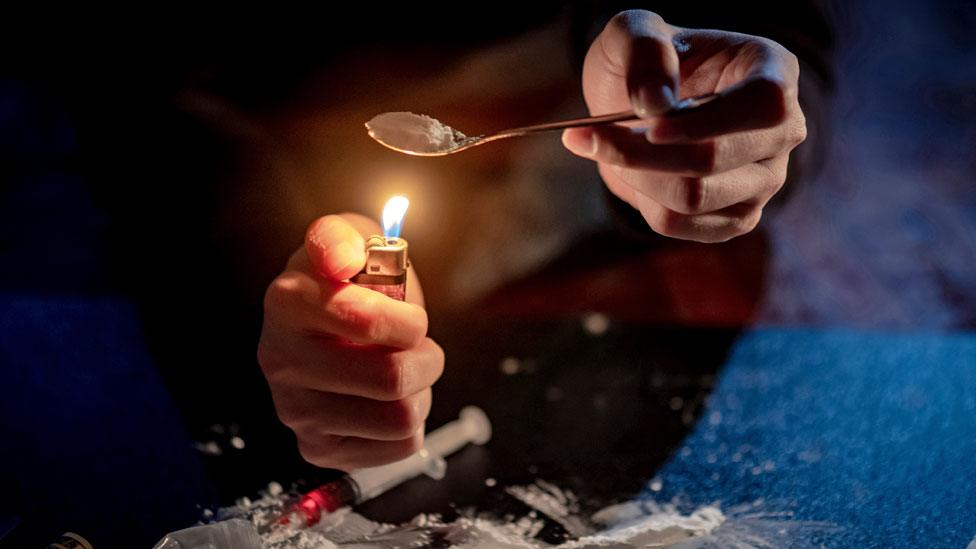Mater Hospital A&E refers almost 1,400 patients to psychiatry
- Published
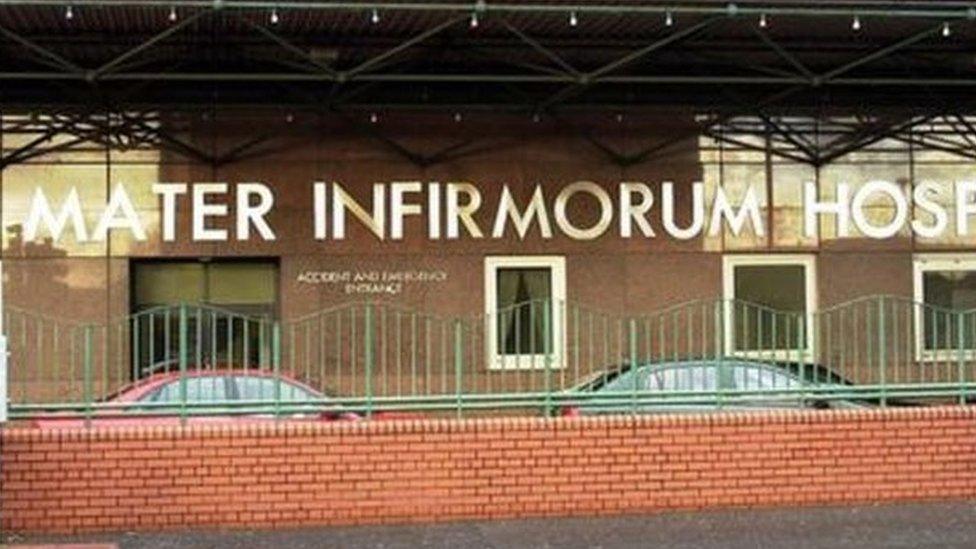
The Mater Hospital has introduced a new ward to help reduce congestion in its emergency department
Almost 1,400 emergency department patients at the Mater Hospital in Belfast had to be referred to psychiatry teams last year.
Most had drug or alcohol problems. At the Royal Victoria Hospital's emergency department that figure was 306.
The north Belfast hospital is at the front line when it comes to dealing with drug and alcohol abuse.
But doctors there say it would be wrong to assume it was only a Belfast problem.
Dr Aisling Diamond, consultant in emergency medicine at the hospital, said she found it "hard to believe that people from a farming community are taking heroin but that's what's happening".
"We have people presenting from small towns and villages," she added.
In response to the problem, the Mater has introduced a new ward to help reduce congestion in the emergency department and help patients who have recurring drug and alcohol problems.
'Effective service'
"About a year ago we set this up," Dr Diamond said.
"It's difficult at times to work within that level of congestion.
"We developed this unit to identify patients who can be assessed quickly.
"It's an effective service and I'm proud of it.
"The trust took a leap of faith and they did the right thing and they've created a good service that needs protected."
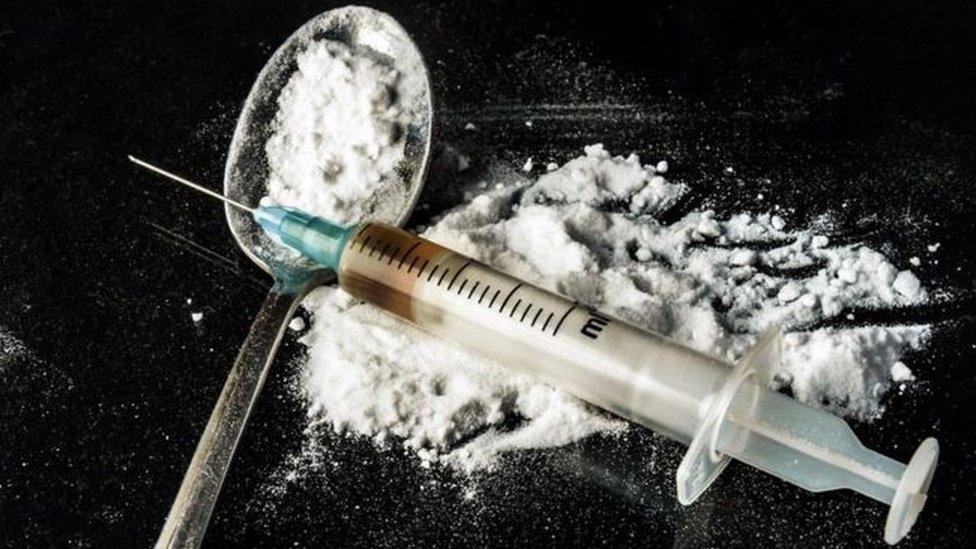
The north Belfast hospital is at the front line when it comes to dealing with drug and alcohol abuse
In the past, patients with mental health and drug problems often attended the emergency department.
When they left the hospital, some went on to take their own lives.
The hospital said this new ward was providing a safety net for patients who were at high risk.
The staff try to ensure patients have services to go to in the community that will help with their addiction problems when they leave hospital.
Patients like a woman we spoke to who we are calling Anne.
'Want to get my children back'
She wanted her identity to be protected but she told us she ended up in hospital because of her addiction, which was fuelled by a sense of hopelessness about her life.
"I've just been so lonely and depressed because I miss my children," she said.
Anne has three children aged between six and 14 years but they are all in care because of her addiction.
She told us her mother left home when she was three and she "didn't have a great upbringing".
She last saw her children on 12 December but said she was finding it hard to cope with day-to-day life.
"I hate myself so much for losing my children, that's all I want, to get my children back," she said.

The hospital says its new ward is providing a safety net for patients who are at high risk
Anne is typical of many of the people doctors treat at the Mater Hospital.
She lost her brother to alcohol abuse 10 years ago and, along with her children being taken into care, her life has spiralled out of control.
Another patient told us he had been admitted three times since Christmas, on each occasion after a suicide attempt.
He was highly agitated and told staff he wanted help, but often failed to attend follow-up appointments because of his addiction.
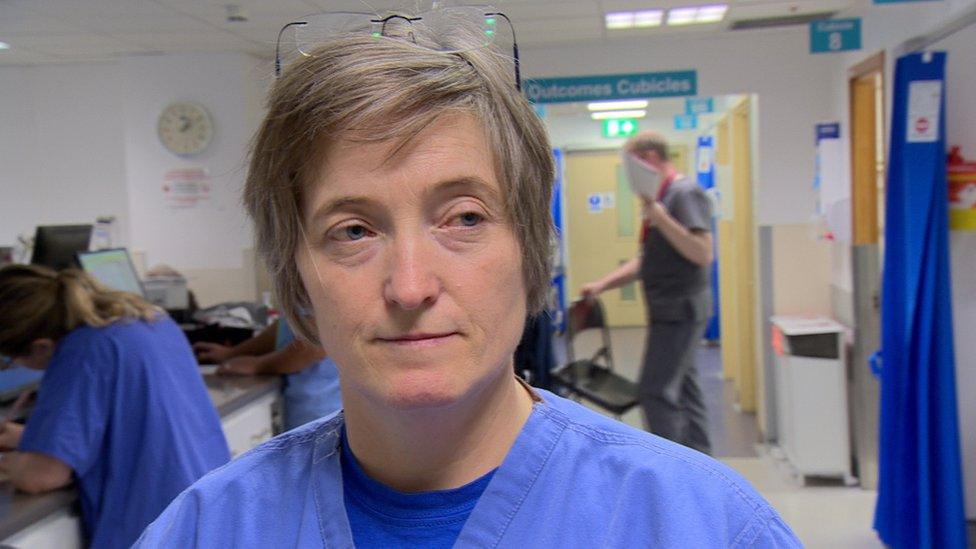
Dr Aisling Diamond says there are a lot of pressures in communities that are making it hard for people with addictions
"He's only 24 but he's drinking six litres of cider a day and has had a significant drug problem in the past," Dr Diamond said.
"He's aware he's an addict but he can't fix it so he has come here to try to get us to fix it for him, but as he outlined clearly there are big issues for him.
"Cocaine is readily available on the street.
"Pregablin (a prescription drug) is readily available on the street, so there is a lot of pressures out in the communities that aren't being addressed and making it much harder for people with addictions.
"As a result there's a big volume of patients heading towards us."
- Published9 March 2020
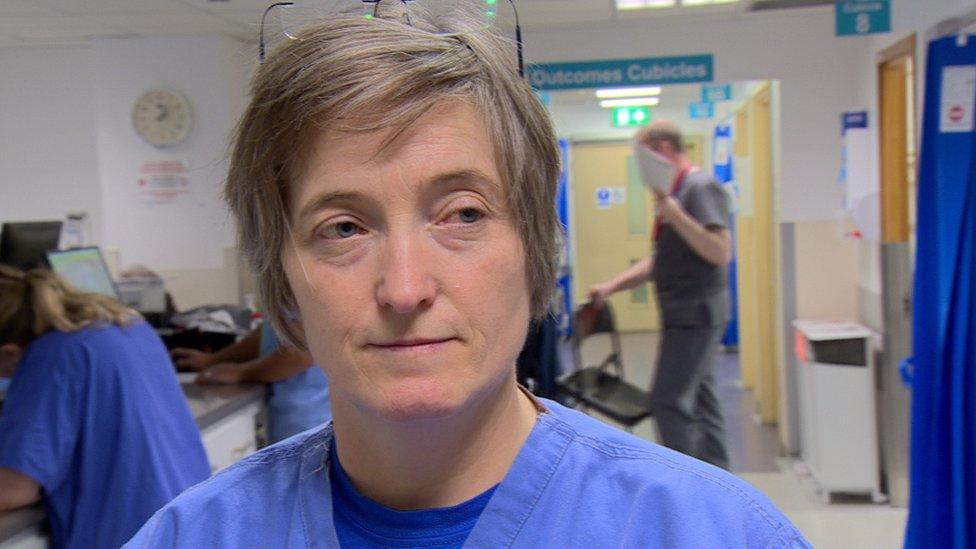
- Published16 January 2020
